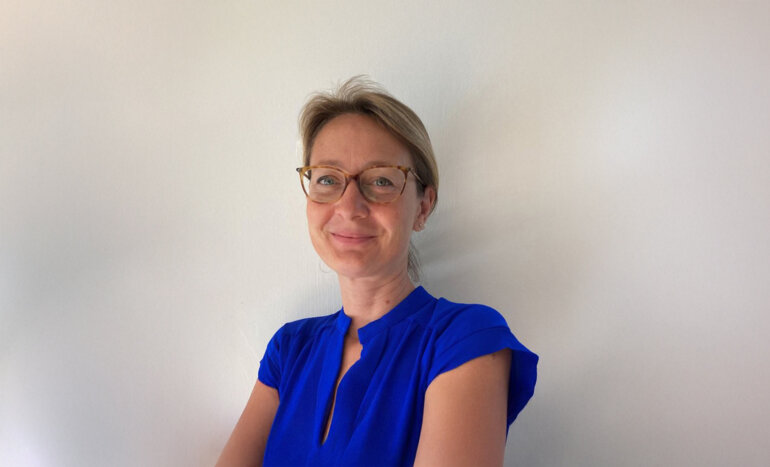Author: Susana Banerjee, Chair of the ESMO Resilience Task Force, ESMO Director of Membership, The Royal Marsden NHS Foundation Trust and Institute of Cancer Research, London, UK
Six months on since the start of the COVID-19 outbreak, day-to-day life for many people has changed beyond recognition, but how has the pandemic affected the oncology community and how will it continue to impact oncology professionals in the future?
Nearly one in two of the almost 1,000 oncology professionals participating in the latest ESMO Resilience Task Force Survey – a series aiming to assess the impact of COVID-19 on the wellbeing and job performance of oncology professionals worldwide over time – reported a feeling of burnout (Abstract LBA70_PR). When we conducted the survey across 101 countries in July/August of this year, our preliminary analyses showed that more participants reported a risk of distress (33% versus 25%) and a feeling of burnout (49% versus 38%) than when we conducted the survey 3 months previously in April/May. These results indicate lower levels of wellbeing among oncology professionals within a 3-month period during the early part of the pandemic.
In the first survey of 1,520 participants carried out in April/May 2020, wellbeing and job performance since COVID-19 appeared to have an inverse relationship to the estimated COVID-19 crude mortality rate. As the mortality rate increased in a geographical location, perceptions of job performance and wellbeing deteriorated. In contrast, burnout did not appear to follow patterns of COVID-19 crude mortality rates.
Reassuringly, the surveys revealed that since COVID-19, job performance – the ability to perform our normal roles to the same standard as before the pandemic – appears to have improved over time, with 51% reporting a favourable job performance in July/August, compared with 34% in April/May. In the first survey, improved job performance was associated with both adequate job control and psychological resilience. It is essential that workplaces maintain good leadership to support oncology professionals to feel they have adequate control of their job, and to support trainees and career development.
While we currently do not know all of the factors influencing wellbeing since COVID-19, we recognise that participants with higher levels of perceived self-reported resilience, pleasant working conditions and those who felt valued by their organisation reported lower levels of distress. Interestingly, younger oncology professionals aged ≤40 years, female colleagues and those working longer hours were at higher risk of distress. Participants who had prolonged working hours and concerns about the impact of the pandemic on their training or career were more likely to report feeling burnout.
Psychological resilience – which also encompasses the ability to adapt to changes at work – was predictive of wellbeing and burnout levels. In light of these findings, resilience training is one of the key measures that could be implemented to help improve wellbeing among oncology professionals. Improving work conditions, addressing the problem of prolonged work hours and the ways we work, and taking steps to make employees feel valued are also important workplace interventions that could help enhance wellbeing.
COVID-19 has posed unique challenges in cancer care. For instance, the use of immunosuppressive agents was a real concern during the initial surge of COVID-19, given the potential life-threatening consequences of inadequate immunity. Oncology professionals globally faced tough decisions on whether to stop treatment, change treatment regimens, modify doses and in some cases, reverse previously planned treatment decisions. Patient-oriented aspects of oncology were forced to change because of COVID-19, including having to relay bad news via video link instead of in person, and the heart-breaking situation of patients not being allowed visits from loved ones during inpatient stay, even at the end of their lives.
For an increasing number of cancer centres globally, cancer care is getting back on track and adjusting to the new normal. Visitor restrictions continue to be in place at many cancer centres and a greater number of consultations are now occurring via telephone or video links, rather than face-to-face.
It is essential that we understand the impact of COVID-19 on the experiences of oncology professionals so that we can make evidence-driven decisions on how to optimise resources for the benefit of professionals and organisations in the oncology community. For this reason, we would like to encourage all oncology professionals to take part in the next ESMO Resilience Task Force Survey III planned for early 2021. Engagement of participants across a broad range of disciplines from different countries will help deepen our understanding and point to future directions for change. Acknowledging that taking care of healthcare professionals is a priority for maintaining optimal care for our patients.
Abstract and session details
- Banerjee S, et al. The impact of COVID-19 on oncology professionals: initial results of The ESMO Resilience Task Force Survey Collaboration. ESMO Virtual Congress 2020, LBA70_PR
Proffered Paper - SARS-CoV-2 and cancer 1, 19.09.2020, h. 14:25 - 16:05, Channel 3






